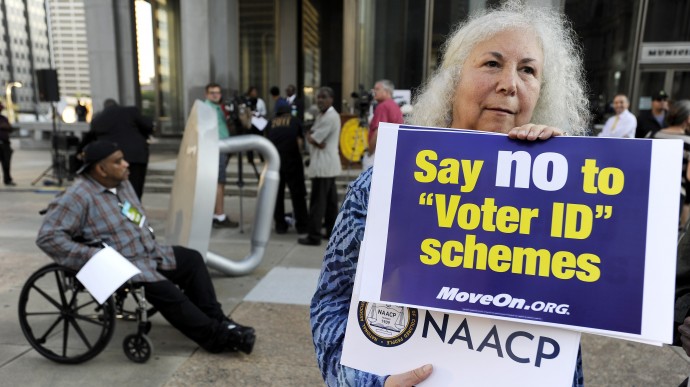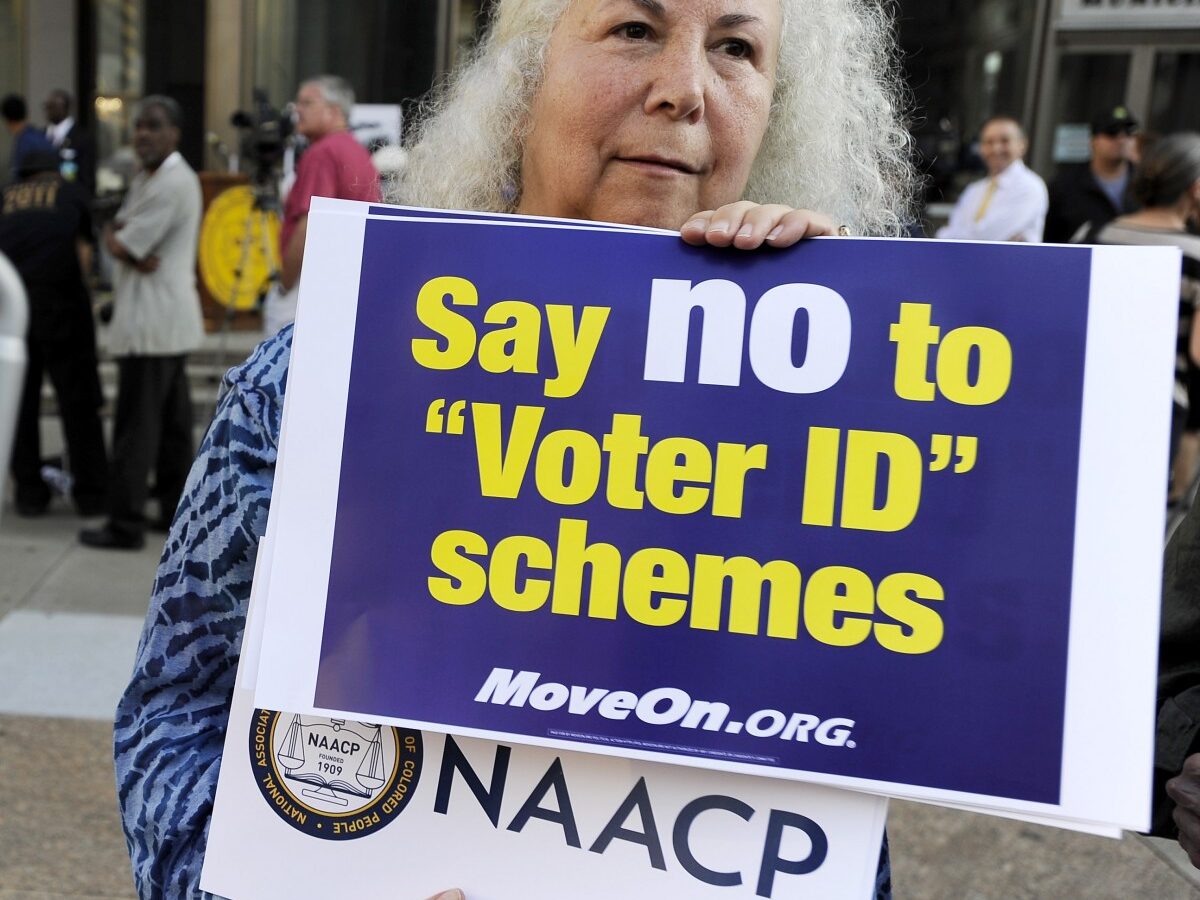
(MintPress) – As the barrage of political television advertisements will only grow as Election Day nears, candidates and activists acknowledge that grassroots efforts could be one of the strongest ways to emphasize the importance of voting. The events take many different shapes: In Minneapolis, Congressman Keith Ellison joined rapper Brother Ali at the #GetOutToVoteMN show, which allowed for attendees to register to vote and examine political issues on the ballot.
In Orlando, the Souls to the Polls movement stressed early voting in light of Florida’s legislature shortening the period of which early ballots could be cast. Regardless of the cause, candidates involved in this year’s election acknowledge that small grassroots movements could play a vital role in next week’s outcomes.
Paul Sracic, political science chair at Youngstown State University, acknowledged that television advertising can only encourage a voter base so much. With the debates and stump speeches winding down, it comes down to community efforts to get people registered to vote because political exhaustion and advertising fatigue has many voters burned out, he noted.
“The big events are done. So now it’s just about getting these voters out to vote,” Sracic said. “I think we’ve become so inundated with advertising and phone calls and commercials that both sides have to realize that there’s [sic] diminishing returns at this point.”
For those in Orlando, these efforts may come in the form of an organization taking charge and seeing that voters are equipped with the know-how in light of policy changes. In Orange County, a political hotbed in recent history, predominantly black churches organized a movement to make sure their early votes were cast on time after a new Florida law shortened the time frame of which early voters could be cast.
The churches offered a platform for voters to participate who otherwise may not have known about the legislative changes. For some, such as Rasha Mubarak, a coordinator for the Islamic civil rights organization Emerge USA, the churches raised awareness so voters could express their opinions of the current systems in place.
“We want to get them out early and build momentum in the community,” Mubarak told the Orlando Sentinel. “For us, this is very important for us to go out to the polls because of the anti-Islamic rhetoric we have seen in this election.”
Pushing back against voter ID
Smaller, localized efforts have proven beneficial for demographics that have recently seen voter identification laws that disproportionately affect poor and minority voters. Aside from Souls to the Polls events in Florida, grassroots pushes across the nation have been geared toward quelling the impact of voter ID laws. In Ohio, volunteers registered more than 3,500 black voters in poor neighborhoods who did not have access to proper identification to meet the state’s requirements to vote. Another group in Atlanta helped those living in a homeless shelter to get the identification they needed to vote.
Gregory Jackson began volunteering with the National Association for the Advancement of Colored People (NAACP) in September to educate people in Pennsylvania about voter ID laws and helping those affected to get the appropriate IDs. Pennsylvania could be one of the hardest hit states with voter legislation, as around three-quarters of a million people are estimated to be eligible to vote but do not have the proper ID.
“I talked to a lot of people,” Jackson told McClatchy. “There were a lot who just flat out said they weren’t going to vote … because their vote’s not heard. And we turned a bunch of those people around and got them to register and got them to commit to getting their valid IDs.”
The impact of voter ID laws will only be known after the election, but the Brennan Center for Justice, a subsidiary of the New York University School of Law, found that of all the voter ID laws passed in the United States as of 2006, as many as 11 percent of adult citizens could be disqualified from voting – totaling around 21 million people.
Those numbers have likely inflated after the election of President Barack Obama. Claims of voter fraud have opened the floodgates of alleged voter suppression, as 34 states altered or enacted some form of voter ID law after the president’s election. Critics argue that the laws, proposed by Republican legislators, are an attack to one of the Democrat’s strongest voting blocs. The American Civil Liberties Union (ACLU) argues that the laws are targeted pieces of legislation intended to disenfranchise a demographic of voters.
“During the 2011 legislative sessions, states across the country passed measures to make it harder for Americans – particularly African-Americans, the elderly, students and people with disabilities – to exercise their fundamental right to cast a ballot,” the ACLU wrote about voter suppression.
The power of the grassroots
Democrats now look at grassroots efforts as this year’s powerful political strategy, much like social media was for Obama in 2008. Liberal donors, such as George Soros, are injecting capital into smaller, independent grassroots campaigns with the hopes of expanding their reach to disenfranchised voters. This past spring, donors gave grassroots movements $100 million to focus on voter registration and Democratic turnout rather than strictly television advertising.
Steve Phillips, a member of the grassroots Democracy Alliance, said Democrats have found it to be much more cost-effective to win the votes of citizens who are facing suppression than it would be to get into an advertising war with the campaign of Mitt Romney. The Obama campaign still spends millions of dollars on television advertising, but has increased its one-the-ground grassroots efforts in swing states.
“You can dump $10 or $20 million in TV ads in Ohio and try to reach the persuadable swing voters there, or you can up voter turnout among Latinos in Colorado and Arizona and win that way,” Phillips said. “It’s much cheaper.”
While many grassroots efforts are from small independent organizations such as the Souls to the Polls in Florida, well-establish entities such as the NAACP are taking on smaller start-up missions. In Minnesota, the NAACP has launched a “Vote No Twice” campaign with the hopes of turning away the states proposed marriage amendment that looks to ban same-sex marriage and voter ID proposal.
Ben Jealous, NAACP president, said the grassroots efforts are rooted in discriminatory bills that go beyond voter ID laws, but encompass all violations of human rights.
“For people who are civil rights people, for people who are human rights people, they can understand that while one appears to be about one issue, one appears to be about the other, they’re both about discrimination and therefore both should be opposed with similar force,” Jealous told Minnesota Public Radio (MPR).
Former presidential candidate Michael Dukakis said Obama has done unparalleled things with grassroots organizing, both in person and online. He likened it to old-fashioned retail politics and said it is beneficial for candidates to champion causes that benefit both those who face discrimination and voters who are fatigued with the level of attacks ads on television.
“Personal contact on an ongoing basis is key in any campaign and proved true for Obama,” Dukakis said. “Interaction with real people can make a huge difference when they are local people who live, walk and talk like those in the precincts in which they’re working.”


